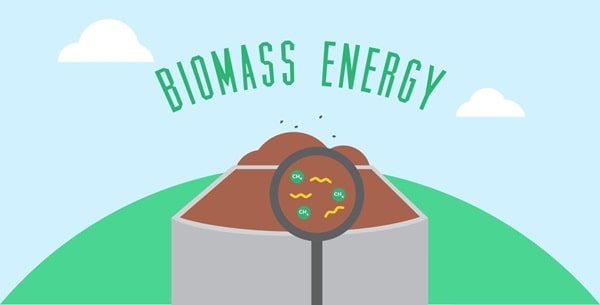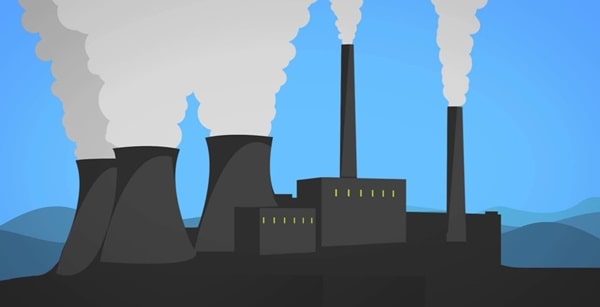In the simplest words possible, Biomass energy is a type of clean energy that comes from things like animal and plant waste. Basically, it uses the chemical energy that is stored in these things, that’s the whole concept. Biomass energy is praised for its potential to reduce greenhouse gas emissions, promote energy security, and support rural economies. However, it also faces criticism regarding its efficiency, sustainability, and impact on land use.
But the real question is: how are we going to use this power? The simple answer is that biomass can be burned directly to make heat. But that’s not it though, there are also different ways to turn it into electricity, biogas, or biofuels, such as burning, gasification, and anaerobic digestion. And yes, as we all know, biomass energy is great because it can be used over and over again. Know let’s investigate the merits and demerits of Biomass energy.

Advantages of Biomass Energy
1. Always Renewable
You see, with biomass energy, we use organic materials that can be grown again and again, which is precisely why biomass energy is so good for the human race. Biomass can be made as long as there are plants and organic waste, which aren’t going anywhere anytime soon, right? So, that’s that.
2. Carbon Neutral, A Green Win
Carbon-free energy can come from biomass, which is one of the coolest things about it. How? Well, about the same amount of carbon dioxide is released when biomass is burned as was taken in by plants while they were growing.
3. Turns Waste into Power
Simply put, a great way to cut down on trash is to use biomass energy. It uses organic waste that would otherwise end up in landfills, like extra food from farms, waste from forests, and even trash from homes. We can very well cut down on methane pollution from rotting organic matter and landfill use by turning this trash into real and usable energy.
4. Super Reliable Energy
Unlike sun and wind power, which depend on the weather, biomass is a steady source of energy. How? Well, biomass plants can run all the time, giving us a steady source of heat and electricity. So, biomass has your back no matter what the weather is out there.
5. Versatile Energy Wonder
Sure, biomass can be used for many things. Energy can be made from it in many ways, such as heat, electricity, and biofuels. In other words, it can be used for everything, from running businesses and houses to fueling up cars.
6. Cuts Fossil Fuel Dependency
We depend less on fossil fuels when we use biomass, right? This not only protects nonrenewable resources, but it also makes our energy supply more secure by making it more diverse. It’s good for the earth and our energy needs. And there are no two ways about it.
Disadvantages of Biomass Energy
1. High Costs
Talking money-wise, well, yes, it costs a lot to make renewable energy. It takes a lot of money upfront to set up a proper biomass plant, and still, there are ongoing costs like collecting, transporting, and storing biomass materials.
2. Needs Lots of Space
The second big issue with such biomass energy plants is that you’ll need a good chunk of land to set it up. Like, you’d have to grow biomass raw material or store it somewhere, and then there is an additional land requirement for the actual plant itself where the energy is made.
3. Not So Greenhouse Gas Free
Biomass is thought to be carbon neutral, but when it burns, it gives off carbon dioxide and other climate gasses. On top of that, burning can release toxins like methane and nitrogen oxides, which to be honest, is not so good for the air quality as well as the climate as a whole.
4. Environmental Concerns
If we go all in on the production of biomass energy, yes, a lot of damage can be done to the earth that way. Simply put, deforestation and monoculture farming are examples of practices that are not sustainable and can hurt ecosystems, lower biodiversity, and lower the quality of the land.
5. High Water Usage
You might think that biomass is free energy because it can be generated by using waste products, but that way, you aren’t including the high water usage in the equation. And that’s one of the major issues with this.
6. Not Fully Ready for Prime Time
Biomass energy has a lot of potential, but let’s be honest, it isn’t fully commercialized on a big scale yet, or we would have been using it already on a large scale, right? To make it work better and cost less, more study and development are needed.
Quick Comparison Between Advantages and Disadvantages of Biomass Energy
|
Advantages |
Disadvantages |
| Always renewable source | High initial and ongoing costs |
| Carbon neutral in theory | Requires large amounts of space |
| Utilizes organic waste effectively | Emits carbon dioxide and other gasses |
| Provides reliable energy | Environmental concerns like deforestation |
| Versatile applications | High water usage |
| Reduces dependency on fossil fuels | Not fully commercialized yet |


